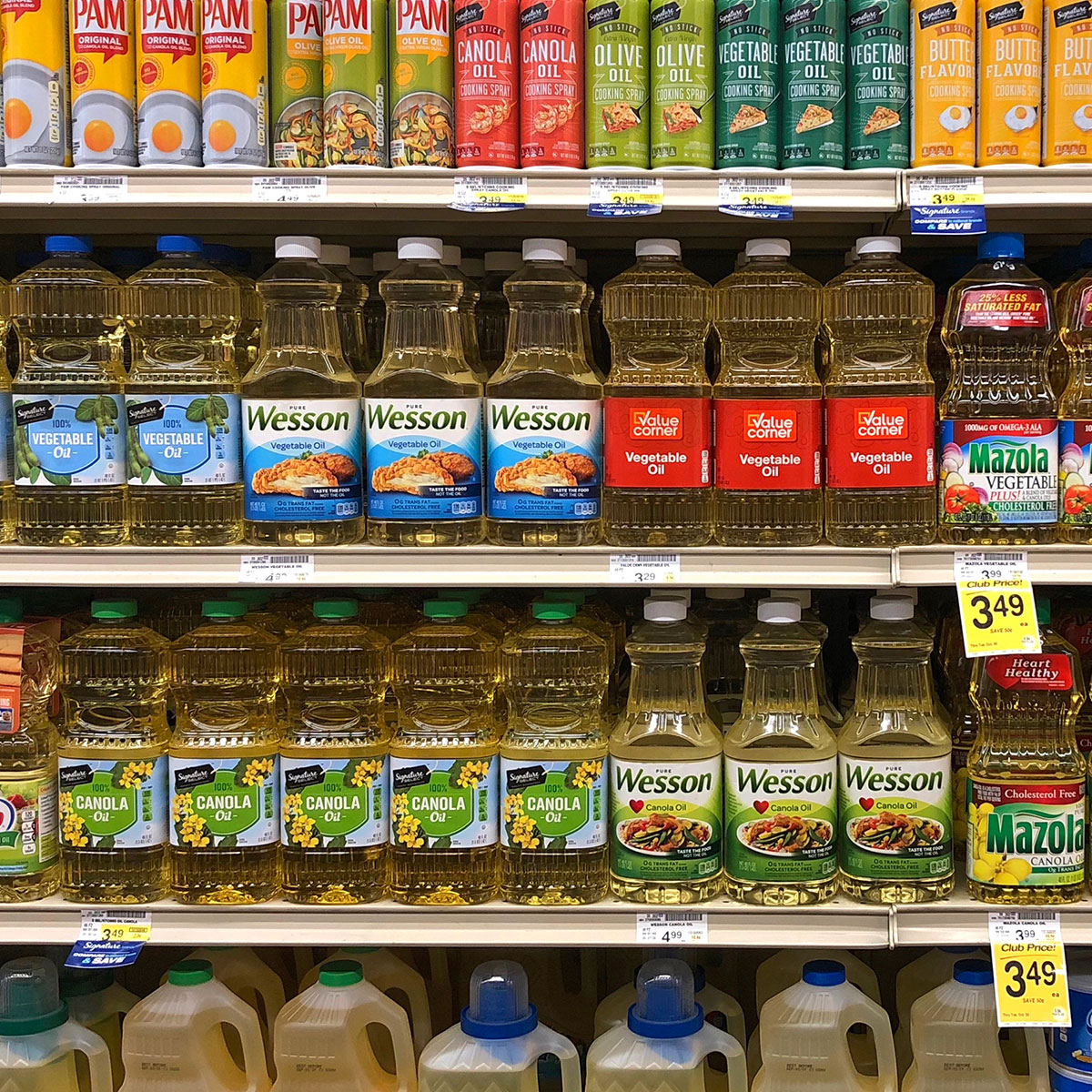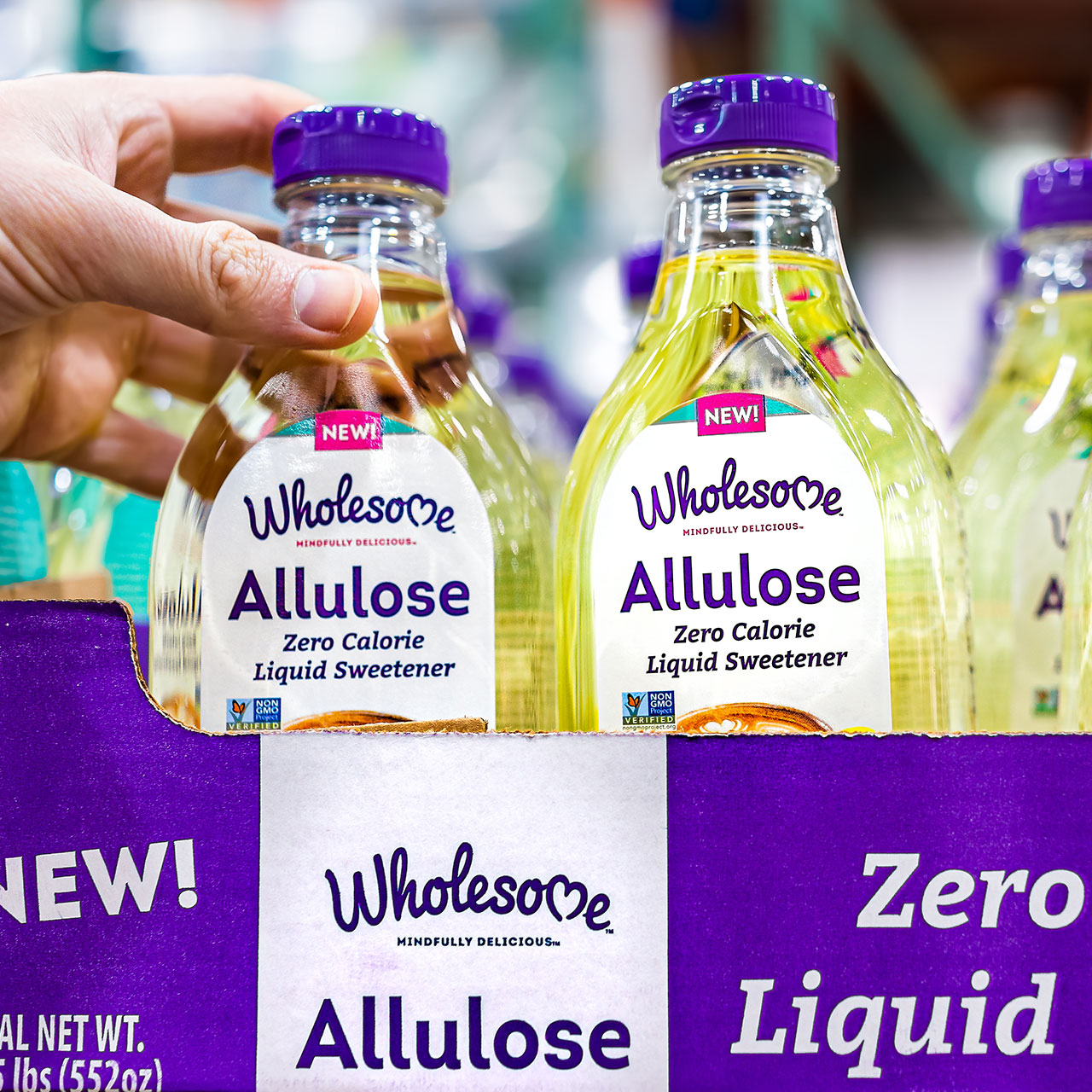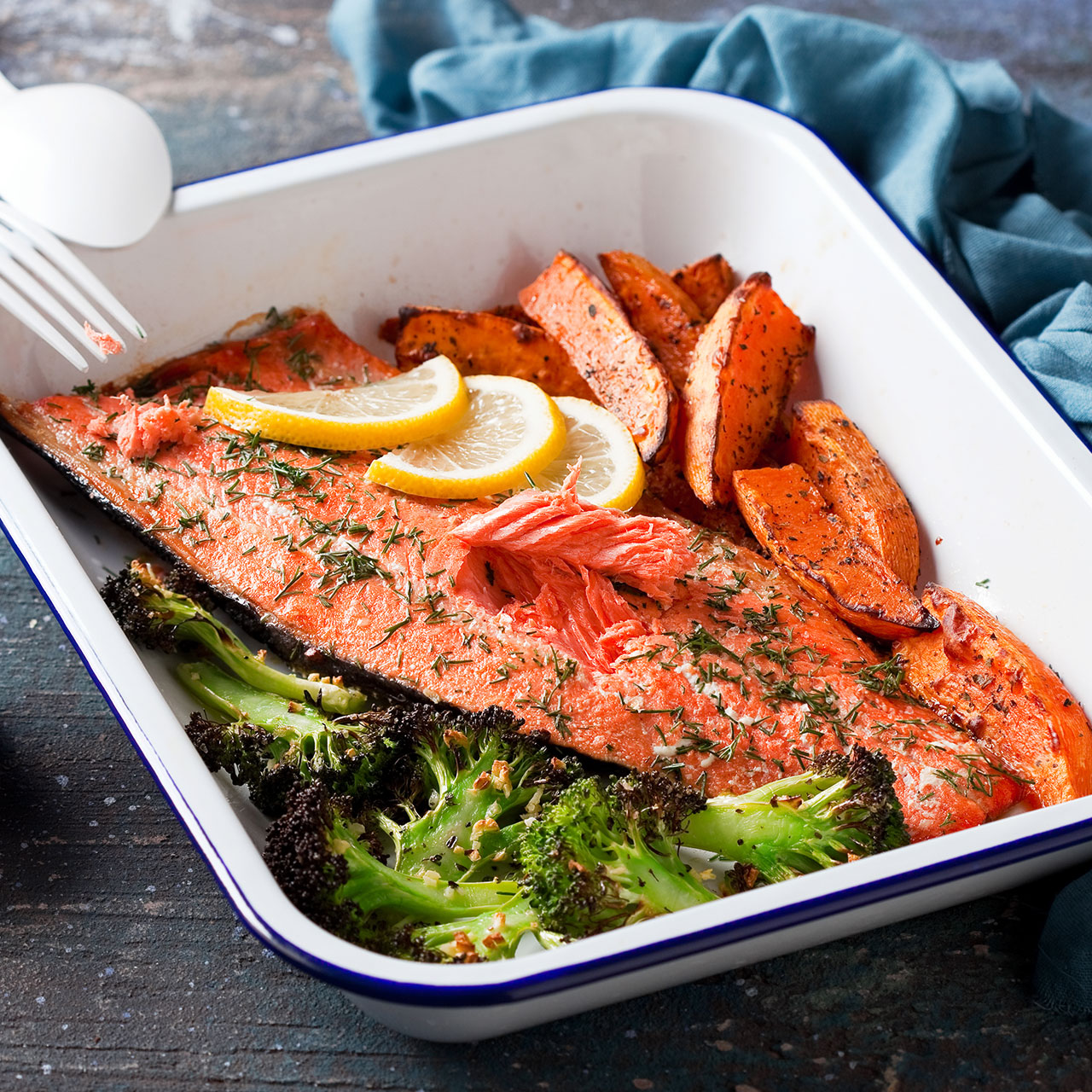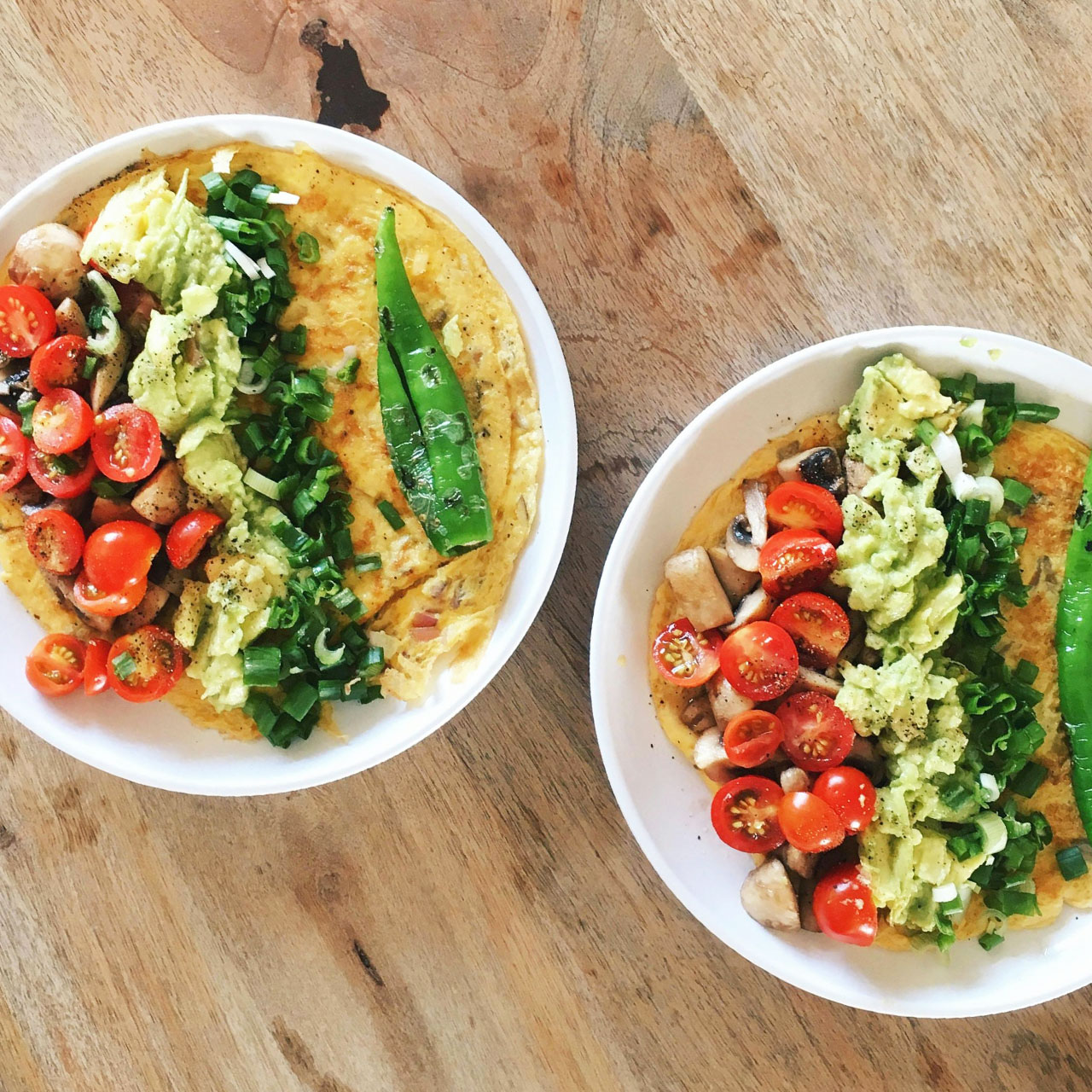Chronic inflammation is a silent but serious health issue that can lead to a host of long-term problems, including heart disease, diabetes, and obesity. While many factors contribute to inflammation, your diet plays a significant role in either fueling or fighting it. Certain foods, especially those that are highly processed or packed with unhealthy fats and sugars, can trigger inflammatory responses in your body, putting you at risk for chronic conditions.
We spoke to health experts to highlight nine of the worst foods you should consider cutting from your diet to help reduce inflammation and protect your overall health. From seemingly harmless condiments to everyday snacks, find out which foods might be sabotaging your wellness goals and learn about healthier alternatives that can keep you on the right track.


1. Artificial sweeteners
Since we know that consuming too much sugar can result in a range of health risks, including weight gain, you may think that artificial sweeteners make a good alternative. Unfortunately, though, health expert Joanna Wen says that these sugar replacements can also lead to inflammation.
"While they may seem like a healthy alternative to sugar, artificial sweeteners can actually lead to inflammation in the body, which can contribute to weight gain and other health issues," she says. Instead, you're better off sticking to natural sweeteners whenever possible.

2. Vegetable oils
Vegetable oils may sound harmless enough—after all, they come from vegetables, and vegetables are healthy, right? However, nutritionist Lisa Richards warns that many vegetable oils are actually highly inflammatory and could be holding you back from your weight loss goals.
"Vegetable oils can be inflammatory due to an imbalance between omega-6 and omega-3 fatty acids," she explains. "While both types are essential for health, the typical Western diet contains an excessive amount of omega-6 fatty acids, primarily found in vegetable oils like corn, soybean, and sunflower oils."
When you consume to many omega-6 fatty acids, she tells us, your body could produce more pro-inflammatory molecules in your body. For this reason, it's important to prioritize healthy fats instead. "In contrast, omega-3 fatty acids, found in fatty fish, flaxseeds, and walnuts, have anti-inflammatory properties," Richards notes. Replacing vegetable oils with healthy fat-rich olive oil is one good way to go.

3. Sugar
Okay, so it's no secret that too much sugar isn't great for you. However, you can never be told too many times—especially when there's so much sneaky sugar in so many of your favorite food and beverages, even when they seem "healthy." Functional nutritionist Amy Lippert reminds us that it's highly important to cut down on the sweet stuff whenever possible. "When you consume [sugary foods and drinks] they have a negative impact on blood glucose levels and will cause a spike, resulting in an immediate burst of energy followed closely with a crash as the body works to bring the blood glucose levels back to a safe level," she warns. "High levels of glucose are damaging to the body, so in response to this spike, the body releases insulin, a hormone that is the key to opening up the door to our adipose tissue (fat) to store the glucose (as glucagon) in order to reduce the levels in our blood, leading to weight gain." We'll definitely be keeping an eye on the nutrition labels to check sugar content next time we're at the grocery store.

4. Margarine
Although it was once hailed as a healthy alternative to butter, margarine is, unfortunately, actually quite bad for your overall health, according to experts. In fact, nutritionist Nataly Komova says she discourages her clients from using it because it is "the unhealthiest of all spreads and butters." Yikes! This is because, as she notes, "It mostly carries large amounts of trans-fats and pro-inflammatory omega-6 fats—the worst fats that increase LDL, leading to a risk of heart diseases. Additionally, higher trans-fats potentially cause insulin resistance, which lowers metabolism." Yikes! Gomer agrees, explaining that margarine is typically made with seed and vegetable oils like corn oil, soybean oil, peanut oil, and more. "All see oils cause inflammation in the body," she warns, adding that this can lead to a plethora of health issues (including weight gain) over time.

5. Sugary Condiments
Sugary condiments can be stealthy culprits in the battle against weight gain. Often overlooked, these sweet additions to our meals, such as ketchup, mustard, and high-sugar salad dressings, can pack a powerful punch of added sugars. Mary Sabat MS, RDN, LD says, "These condiments often contain high fructose corn syrup and added sugars, which can lead to inflammation when consumed in excess. They also add empty calories to meals, potentially contributing to weight gain."
Being mindful of the hidden sugars lurking in condiments and opting for healthier alternatives can be a major step in maintaining a balanced diet and achieving weight management goals.

6. Processed Meats
Processed meats, such as bacon, hot dogs, sausages, and deli meats, have been associated with adverse health effects, particularly in relation to inflammation and weight gain. These meat products are often high in saturated fats, sodium, and additives like preservatives and nitrates, which can contribute to chronic inflammation within the body.
"Sausages, bacon, hot dogs, and deli meats that have been cured, smoked, or salted often contain high levels of saturated fats, as well as additives such as nitrates and nitrites, which can contribute to inflammation. Processed meats are also high in calories and salt, which can lead to weight gain and increased blood pressure," Dr. Kezia Joy, MD says. She also adds that these types of meats are "high in saturated fats which can lead to obesity and systemic inflammation."

7. White Bread
If a loaf of white bread is your default choice when you're browsing the grocery store aisles, health experts say it's time to switch to whole grain—especially if you want to lose weight. That's because white bread is made with refined carbs, which can take a serious toll on your overall health. "White loaf bread commonly used to make sandwiches is the worst form of bread to consume for many reasons, but especially its inflammatory effects," Richards warns.
Refined carbs like those found in white bread have been stripped of practically all of their nutritional value. As Richard explains, they "have undergone a refining process where the fiber and beneficial nutrients are removed and possibly replaced with synthetic versions." She notes that because of this, products like white bread "damage the gut by causing inflammation and feeding bad bacteria, leading to gut dysbiosis." Overtime, that inflammation can also lead to weight gain. Another major factor here is the fact that eating white bread can lead to blood sugar spikes. The sugar content is especially bad when you consider the fact that the refined carbs lack nutritional value and offer virtually no fiber—so not only does white bread pack in the sugar, but it's also all for nothing, because it won't keep you full for very long. And that means you'll likely run into cravings and overeating later in the day.
Instead of subjecting your body to these effects, experts say you should go for healthier types of bread, like whole grain and sprouted options. You may be surprised by how much better you feel—and how much it helps you lose weight!

8. Energy bars
When you're in a rush, an easy-to-grab energy bar is often seen as a great on-the-go snack. These bars are also typically marketed as healthy options. However, they're usually highly processed and loaded with sugar and other additives.
"Numerous energy bars available in the market are laden with excessive sugar and calories, bearing a striking resemblance to candy bars in terms of their nutritional composition," dietitian Krutika Nanavati warns. As we've already noted, consuming too much sugar is one way to set yourself up for higher levels of inflammation and a less efficient metabolism.
But there is one solution: make your own energy bars with whole foods! "Making energy bars at home allows for control over the ingredients used, ensuring a lower sugar content and a higher proportion of wholesome, nutrient-dense ingredients like nuts, seeds, and dried fruits," Nanavati says. Got it!

9. Potato Chips
It shouldn't come as too much of a surprise to hear that processed snacks like potato chips can lead to weight gain over time when eaten in excess. "Potato chips and snack mixes are high in unhealthy fats and sodium," warns dietitian Catherine Gervacio. "Their fat content can contribute to excess calorie intake which can lead to weight gain. These chips are typically fried in unhealthy fats, such as vegetable oils like sunflower oil or palm oil. These oils are high in saturated and trans fats, which have been linked to inflammation in the body and an increased risk of chronic diseases like heart disease and obesity."
Say it ain't so! Luckily, there are plenty of healthier snack options out there. Gervacio recommends air-popped popcorn, roasted chickpeas, raw nuts and seeds, or veggie sticks with hummus to "satisfy cravings while providing nutrients and fiber." Perfect!


























